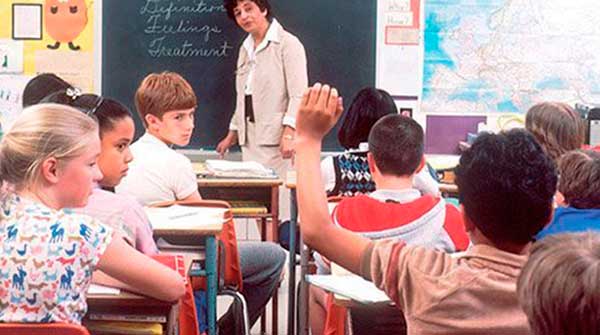 A few weeks ago, the Government of Alberta announced an ambitious overhaul of the Kindergarten through Grade 12 public education curricula. The $64-million project will span six years and will involve approximately 50 education professionals in the planning, drafting, and communication of the multi-faceted review.
A few weeks ago, the Government of Alberta announced an ambitious overhaul of the Kindergarten through Grade 12 public education curricula. The $64-million project will span six years and will involve approximately 50 education professionals in the planning, drafting, and communication of the multi-faceted review.
What is unusual about Alberta’s approach is that it means to tackle several subjects, all grade levels, and both French and English languages simultaneously. It’s also curious to note that it will be the Alberta Teacher’s Federation – not the government – which will choose which teachers are involved in deciding what students will be learning starting in the 2020’s and beyond.
Although Alberta is promising to update and enhance the programs related to mathematics and language skills, there is a push to include such topics as climate change, mental health, gender diversity, and indigenous studies. With the majority of today’s teachers, who have a background in liberal arts (as opposed to math or sciences), it’s no wonder there is a focus on subjects that these teachers would have studied in university. These are topics that the teachers themselves are interested in.
Yet in today’s global economy, other competitive jurisdictions are taking measures to help students become job-ready. Alberta’s planned changes are missing a valuable opportunity when it isn’t considering the needs of the business community in the proposed changes.
We live in an age of information, but too many public schools are graduating students who are essentially computer illiterate. Right across North America, there is tremendous growth in jobs within the IT sector. Software developers, database administrators, IT managers are all high paying jobs that are going unfilled because of gaps in our education system.
Computer skills should be introduced early into a child’s education and computer based education can be employed in the classroom as a progressive learning tool. The goal is to have students completely comfortable with working on a computer by the time the child graduates from Grade 12.
While there are merits to introducing school children to topics like climate change, gender diversity and mental wellness, it’s wrong for schools to overlook the importance of preparing children for skills they will need in adulthood. Key among them: children need to be taught the subject of financial literacy – including managing personal debt, saving for retirement, and understanding taxes.
It is doubtful that the next generation will be able to create as much wealth as their parents. The facts are undeniable: Financial problems are the leading cause of divorce and are among the top reasons why someone commits suicide. Only one-third of baby boomers are saving enough for retirement and almost 75 percent of households are living paycheque to paycheque.
If mental health is a goal of the Alberta Education Ministry, then the knowledge and understanding of financial matters could help alleviate significant stresses that too many families are facing. Financial literacy is a subject that the public education system can no longer ignore.
We call the money and resources allocated to public education an investment in tomorrow. By giving students the tools they will need to grow wealth, as opposed to bad debt, we will be helping the next generation to succeed. That’s why the public education curricula needs to include financial literacy.
Maddie Di Muccio is a former town councillor in Newmarket, Ont., and former columnist with the Toronto Sun.
Maddie is a Troy Media contributor. Why aren’t you?
The views, opinions and positions expressed by columnists and contributors are the author’s alone. They do not inherently or expressly reflect the views, opinions and/or positions of our publication.


